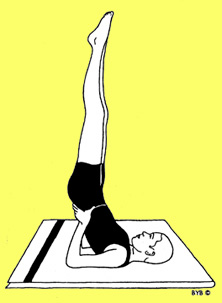Every woman goes through a phase in her life called "the menopause" or the "change of life". For most women, this occurs between the ages of 40 and 50. During the menopause, a woman’s body changes both physically and energetically.
Two hormones that play an important role in a woman’s development are progesterone and oestrogen. Progesterone is the "mother" of all hormones. It has the ability to be converted into other hormones should the body need them. This hormone is secreted by the ovaries. Oestrogen plays an important role in the development of female characteristics, regulating the menstrual cycle and during pregnancy.
During menopause, the hormonal system is out of balance. Symptoms can vary from hart palpitations and hot flushes, to night sweats and emotional swings or mood changes. It can also cause heart problems and vascular disease as well as osteoporosis.
The menopause is a natural process for women and is certainly not an illness. However, it is often regarded as such in the West. Resistance to the menopause may have to do with resistance to the female ageing process. Also, the standards and values that prevail in today’s society influence the way we view the menopause. The pharmaceutical industry plays a role here too, confirming our attitudes. Furthermore, society tends to regard menopause, and indeed pregnancy, as things that get in the way of our working lives (as oppose to our lives).
In countries such as Japan, China and India, women seem not to suffer from menopause-related symptoms. This could have something to do with the women’s diet, but also with how they feel about growing old – women rank higher in status the older they get in these countries. This could lead us to believe that the way women think, how they view their own ageing process and their own menopause, influences the way they experience the change of life.
In Eastern medicine, the menopause is associated with certain energies in the body – the kidney energy, spleen/pancreas energy and liver energy. Liver energy is associated with the purification of the blood and the conversion of food into energy. Spleen/pancreas energy regulates the digestion and is associated with the body’s hormonal balance. Kidney energy regulates bone growth. All these energies decrease during menopause, causing bones for example to become more brittle. Spiritually speaking, kidney energy is related to wisdom, which can deepen during menopause.
So what is the best way for women to handle this change of life? Lifestyle, in particular dietary factors, influences the intensity of the symptoms. Adjustments to lifestyle can therefore help to ease the symptoms.
Regarding diet:
Herbs can also help alleviate the symptoms of the menopause.
Helpful herbs include:
This is just a selection of herbs that may help during menopause. They should always be used in moderation and one herb should never be drunk in large quantities. Varying your intake will lead to a balanced use and more effective results.
It is best to avoid cows’ milk. Milk and cheese contain a protein that is difficult for the human body to absorb. Traces of it remain in the intestines, which can lead to mucus formation and a reduction in the absorption of potassium through the mucus membranes. This places a huge demand on the digestive system’s energy resources. The body can obtain all the calcium it needs from green vegetables.
Other products that can have an adverse effect on the body during the menopause are: sugar, red meat, coffee, cocoa, black tea, alcohol and nicotine. Alcohol affects the blood sugar level in the body. Research has shown that women who smoke enter menopause earlier than non-smokers – the ovaries of smokers produce less than those of non-smokers.
The pharmaceutical industry puts a lot of pressure on doctors to sell its products, such as Premerin, one of the highest sellers amongst synthetic drugs in the US. Unfortunately, little energy is put into the development of natural medicines, because it is forbidden by law to take out a copyright on natural hormones. There is no profit to be made in the pharmaceutical industry investing in such development.
It goes without saying that stress and high expectations (lots of "musts") will exacerbate menopausal systems! It is important therefore to get enough sleep, and to sleep deeply. Physical exercise (such as yoga, stretching or T’ai Chi) will also help, as will massage, such as Shiatsu.
As I’ve mentioned, herbs can offer great relief during the menopause. They are a natural product without side effects. Recommended books include: Marilyn Glenville "A Natural Alternative"; Susan Weed "Menopausal Years" and "Healing Wise"; Annemarie Colbin "Food and Healing".


(The above exercise in which the body is inverted should not be done immediately after eating, while menstruating, if you have a brain tumour or have had a brain haemorrhage or are suffering from high blood pressure.)